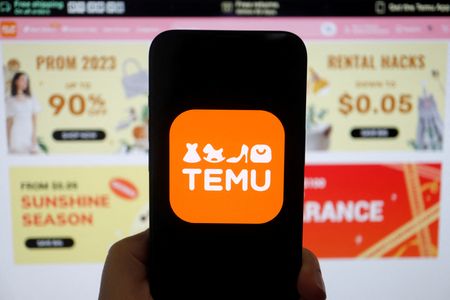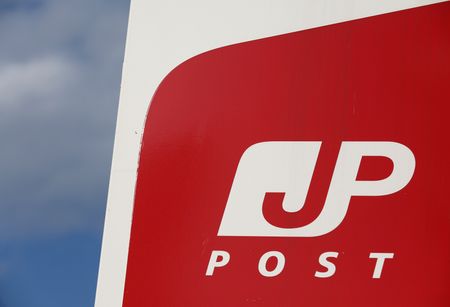By Deborah Mary Sophia and Casey Hall
(Reuters) -E-commerce firm PDD Holdings, which operates low-cost platforms Pinduoduo in China and Temu internationally, easily beat market estimates for quarterly revenue on Monday, although net profit fell due to investments to ward off intensifying competition.
U.S.-listed shares of the company jumped nearly 12% in premarket trading, buoyed by adjusted earnings per ADS of 22.07 yuan, which exceeded estimates of 15.74 yuan.
The Chinese government has been seeking to boost domestic consumption to revive a sluggish economy that is navigating several pressures, including a weak property sector and U.S. President Donald Trump’s trade policies.
To lure customers, e-commerce majors such as PDD’s Pinduoduo, JD.com and Alibaba have resorted to steep discounts and promotional offers. While that has helped prop up demand, it has also sparked a price war between the companies.
The need to keep prices low in China, combined with U.S. tariffs driving up its costs tied to international shipping and sales, has hit PDD’s margins in recent quarters.
Second-quarter earnings showed PDD has increased fulfilment fees, bandwidth and server costs and payment processing fees, as well as sales and marketing expenses.
“Revenue growth further moderated this quarter amid intense competition,” said PDD Holdings’ vice-president of finance Liu Jun. “As we remain focused on long-term value creation, the sustained investments may continue to weigh on short-term profitability.”
PDD reported revenue of 103.98 billion yuan ($14.53 billion) during the second quarter ended June, up 7% from a year earlier.
Temu is also expected to have stabilised in the quarter, with the U.S. and China further extending a tariff truce.
Adjusted net income attributable to PDD’s shareholders stood at 32.71 billion yuan during the quarter, compared with 34.43 billion yuan a year earlier.
In a bid to cushion pressures, Temu has been promoting products already in U.S. warehouses and trying to tap more local sellers. Still, the business is facing competition from global e-commerce company Amazon, which has used its scale to negotiate favourable pricing with suppliers.
Temu has also been pivoting to a “fully-managed” model where the company has more control over product selection, pricing and logistics, with hopes of leveraging its vast supply chain network to keep prices as low as possible.
Even so, a survey released this month by online marketing firm Omnisend found 30% of American shoppers have noticed price hikes on Temu.
($1 = 7.1561 Chinese yuan renminbi)
(Reporting by Deborah Sophia in Bengaluru and Casey Hall in Shanghai; Editing by Murali Anantharaman, Shilpi Majumdar and Susan Fenton)










